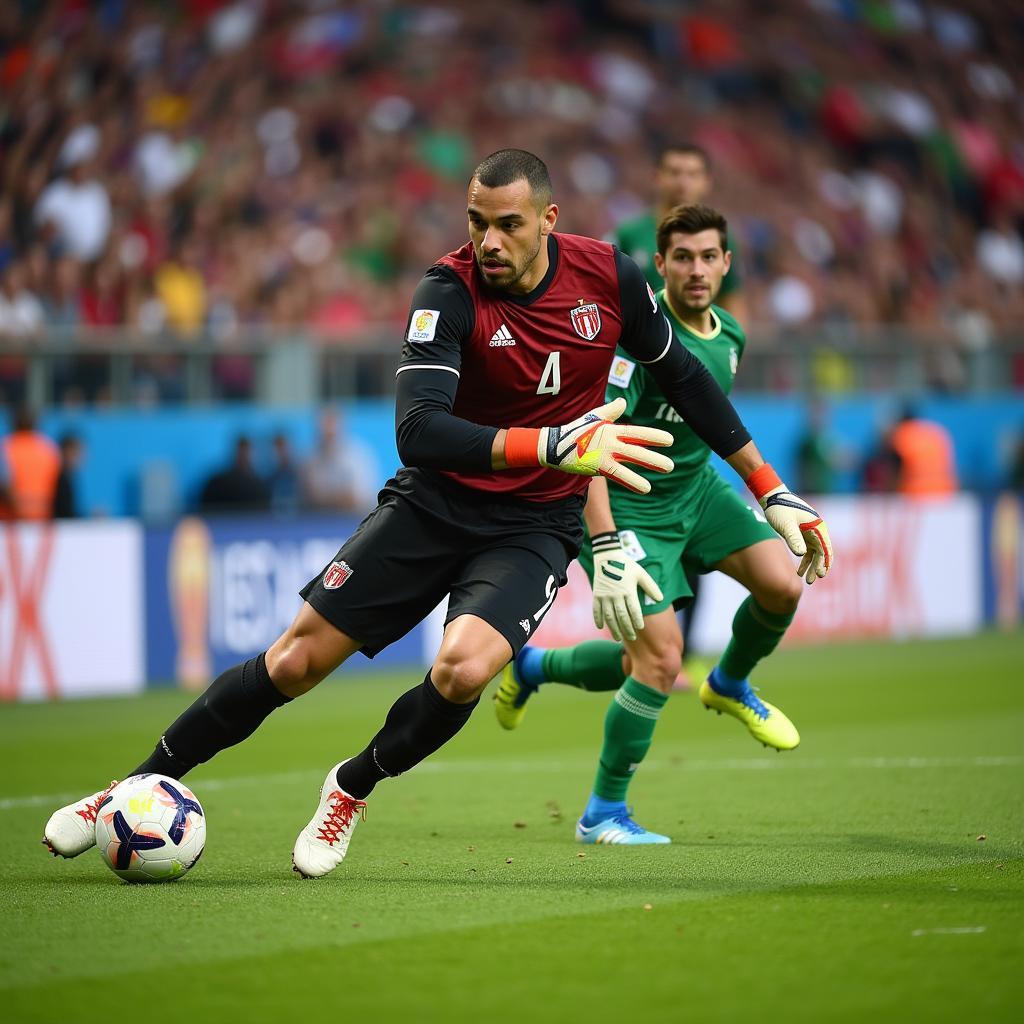Oldest Soccer Player in World Cup History: A Look at the Veterans
October 17, 2024The FIFA World Cup, a spectacle of skill, passion, and national pride, has witnessed countless legendary players grace its stage throughout its illustrious history. While the spotlight often shines brightest on young talents making their mark, the tournament has also seen its fair share of seasoned veterans defying time and leaving their mark on the world’s biggest sporting event. Who holds the title for the oldest soccer player to ever compete in a World Cup? Let’s delve into the history books and discover the players who epitomize experience and longevity on soccer’s grandest stage.
Age Is Just a Number: A Look at the Oldest Players
The record for the oldest player to ever grace the World Cup belongs to Egyptian goalkeeper Essam El-Hadary. At the remarkable age of 45 years and 161 days, El-Hadary took the field against Saudi Arabia in the 2018 World Cup. Not only did he make history with his age, but he also became the oldest player to ever save a penalty in a World Cup match.
 Essam El-Hadary in action
Essam El-Hadary in action
El-Hadary’s achievement stands as a testament to his dedication, perseverance, and enduring love for the game. His story is an inspiration to aspiring footballers of all ages, proving that age is no barrier when it comes to pursuing one’s passion.
Other Notable Veterans of the World Cup
While El-Hadary holds the top spot, several other players have also made their mark on the World Cup at an advanced age:
- Faryd Mondragón (Colombia): At 43 years and 3 days old, Mondragón became the oldest player to feature in a World Cup match when he came on as a substitute against Japan in the 2014 tournament.
- Roger Milla (Cameroon): A World Cup icon, Milla holds the record for the oldest goalscorer in the tournament’s history. At the age of 42, he netted a goal against Russia in the 1994 World Cup.
- Pat Jennings (Northern Ireland): Jennings, a legendary goalkeeper, played his last World Cup match in 1986 at the age of 41. His longevity and consistency between the posts earned him widespread admiration.
 Collage of veteran players: Mondragón, Milla, Jennings
Collage of veteran players: Mondragón, Milla, Jennings
The Impact of Experience: What Veteran Players Bring
The presence of older, experienced players in a World Cup squad often extends beyond their on-field contributions. Their wealth of knowledge, leadership qualities, and ability to guide younger players make them invaluable assets to any team.
- Mentorship and Leadership: Veteran players serve as mentors to their younger counterparts, offering guidance, support, and sharing their invaluable experiences from past tournaments. Their leadership both on and off the field can be instrumental in fostering team spirit and unity.
- Tactical Acumen and Game Intelligence: Years of experience at the highest level equips veteran players with exceptional tactical awareness and game intelligence. They can read the game effectively, anticipate opponents’ moves, and make crucial decisions in high-pressure situations.
- Calmness and Composure: In the heat of a World Cup match, the composure and experience of veteran players can be a calming influence on their teammates. They can help maintain focus, manage pressure, and make rational decisions when the stakes are high.
The Legacy of Experience
The oldest players in World Cup history stand as a testament to the enduring power of passion, dedication, and the pursuit of excellence. Their stories inspire generations of footballers and remind us that age is no barrier when it comes to achieving our dreams. While the physical attributes of youth may inevitably fade, the value of experience, leadership, and a deep understanding of the game remain invaluable assets on soccer’s biggest stage.